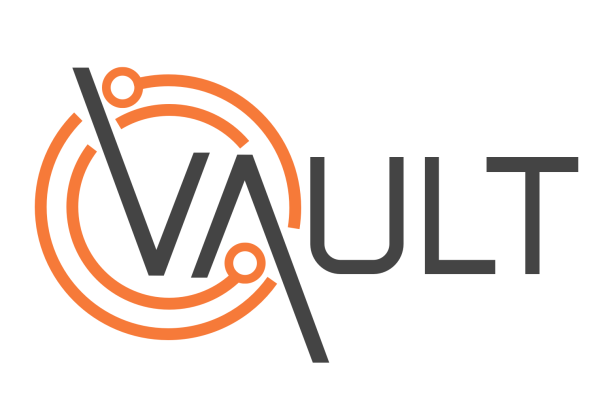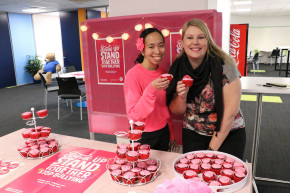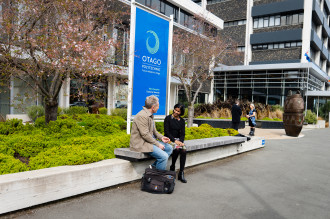- Tūhono home Hoki ki Tūhono
-
- Staff Directory
- Chief Executive Office Auckland International Office Corporate Services Finance Campus Services Functions and Catering Information Systems and Support Marketing, Communications and Engagement Learner Journey Academic Registry International Learner Services Te Punaka Ōwheo
- Learner Experience Academic Excellence Central Campus College of Community Development and Personal Wellbeing College of Engineering, Construction and Living Sciences College of Health College of Work Based Learning Open Education Resource/OERu Research and Postgraduate Studies Te Maru Pumanawa | College of Creative Practice and Enterprise
- Māori Development and Kaitohutohu Office People, Culture & Safety People and Culture Childcare Centre Te Ama Ako | Learning and Teaching Development Wellbeing and Safety Auckland Staff Directory Executive Office Academic Corporate Services Marketing and Business Development Human Resources Campus Quality and Programme Development
-
 Our people make a better world
Our people make a better world
We build the capabilities of individuals, organisations and communities and help them to realise their potential.
Staff Directory
-
- Tools
- Academic Integrity Declaration Form AIC applications dashboard Approved programmes Approved programme fees Centralised assessement repository Chemwatch Course evaluation and surveys CRM applications CRM customer service hub Delegations policy/process Disability and neurodiversity Dynamics 365 (CRM) EBS Ontrack EBS Report Email security personal portal Employment Matters / Solarworkplace / Performance reviews eTaxi eTV
- Financial variance reporting Hidden Disabilities Sunflower programme FCM travel intranet InPlace International entry requirements Knowledgebase articles Learner support dashboards Linkedin Learning Log a job with Marketing Login as an applicant Media consent form Microsoft 365 Moderation App Moodle OP Docs OP Docs - Publishing OP Image Libraries Performance Excellence Portal Pocket Lab (student healthcare) Product Evaluation Panel
- Policy Library Privacy Programme and course design/development Qualtrics XM RDS Remote access support portal Research Database Robertson Library Staff FAQs about graduation Status of Programmes Student intranet (Kāpehu) Study Abroad info for learners Taha Talks (videos for students) Tūhauora I Wellbeing resources Uniprint Vault Webexpenses Auckland tools
-
 Vault
Had an accident or near miss?
Log it here
Vault
Had an accident or near miss?
Log it here
-
- Communities
- Community AI Steering Committee Ally Network EBS Community of Interest EdTech Champions Health & Wellbeing Research Internal Evaluation Neurodiversity Professional Team Professoriate Proud@OP Student Support Website Advisory Group Web Champions Working under the Rainbow Project Learner Capability Trade Training Centre
- Committee Academic Committee Animals@OP Diversity and Equity Doctor of Professional Practice Committee Kaunihera Whakahaere - Leadership Council Internal Evaluation Learning & Teaching Leadership Team Library Committee Mental Health and Wellbeing Advisory Group Otago Polytechnic Board of Directors Pastoral Care Code Committee Programme Approvals Committee Research and Postgraduate Committee Research Ethics Committee Staff Subcommittee
- Think Tanks Mātauraka Our learners achieve educational success Pūtea Our financial success Tākata Our people, our team, our community Tiriti Our active commitment as a Treaty partner Tūroa Our commitment to be a sustainable and responsive organisation
-
 Create a community
Create a community
Do you have a community, committee or project that you'd like represented here?
Communities
-
- About OP
- Keep up to date All news All events All notices All blogs Share your info Create a news article Create an event Create a notice Create a blog
- Community and Partnerships Alumni and friends Education Foundation Operational information Academic calendar 2025 Academic calendar 2026 Current vacancies Dunedin campus map Our policies Topical FAQs
- Who we are About OP Commemorative sites Māori Strategic Framework OP merchandise Our history Our strategic priorities Pasifika Strategic Framework (2025-2030) Vision and Values Working for us OP job opportunities Wellbeing Calendar Working at OP
-
New Zealand: 0800 762 786
contact us
International: +64 3 477 3014
What is Wellbeing?
Wellbeing means we have the tools, support and environments we need to be who we are and to build and sustain lives worth living
What is mental health? Just like our physical health, this is something we all have and should strive for. It's something that dips and rises as we navigate our daily lives.
If you want to talk more about this, you will see below a list of our people at OP that are always keen for a kōrero.
If you would like to read more about this the Mental Health Foundation of New Zealand is a highly readable and useful resource for understanding wellbeing and mental health.
If you would like some resources to start your own kōrero contact People and Culture
Personal Wellbeing Plans
The purpose of a wellbeing plan is to identify possible stressors within your life or at work, and helpful ways to approach these. It may be something that you do for yourself and refer to as you need it. It may be something that you create and share with your manager, or a close friend at work. How you create and implement your plan is up to you. Above and below are five examples of where to start.
If you would like some help with this please email: Health and Wellbeing Partner Below is a list of easy plan templates:
- Hummingly Doing Well Cards are an excellent tool for building a wellbeing plan. You can access a deck from your leader or People and Culture. They are a simple and fun tool to help create a plan in approximately 20 minutes.
- The Five Ways to Wellbeing personal wellbeing plan is a great way to audit the protective factors in your life that help you maintain and grow wellbeing.
- Te Whare Tapa Whā is another familiar model that looks at holistic hauora and provides a framework to analyse where we can focus to improve wellbeing. This template is one way to get started.
- Tōko hauora is an easy step plan developed by Te Pūkenga. This is a template you can update regularly. You may choose to share it with your colleagues.
- Heads Up developed this template for a more in depth plan.
Our Wellbeing Programmes

Explore our range of Hotaka Hauora | Wellbeing Programmes to boost your mental wellbeing.
Facilitated by Te Pūkenga kaimahi and external providers, these online and kanohi-ki-te-kanohi (face-to-face) programmes are offered to help you gain the knowledge and skills you need to build your mental resilience and support your ākonga (learners), hoamahi (colleagues), whānau (family) and friends.
Learn more about the programmes and register your interest here.
Diaphragmatic Breathing with Anne
Watch this video to learn a breathing technique that helps you calm and prepare yourself for the day.
Barriers men face when it comes to Mental Health
Dr Dougal Sutherland joined Jack Tame on Newstalk ZB to chat about the barriers men face to talking about their mental health and a few ways to get around these barriers.
To listen to the interview click here.
Inner critic to Inner Coach
Dr Bex Bell spoke with Craig Bulloch - Te Pukenga Wellbeing Programmes in this interesting webinar about managing an inner critic.
If you are a fan of ACT (Acceptance and Commitment Therapy) you will recognise this model in the practical decription and strategies from Dr Bex.
You can access the recoding here.
Online Team Building Games
Here is a link to some activities that remote teams or kaimahi could use to connect.
People you can talk to
Employee Assistance Programme (EAP)
What Services are available?

Otago Polytechnic’s Employee Assistance Provider (EAP) is TELUS Health, formerly Benestar. The branding will change over the coming months, but the services and the way you access them remain the same.
- EAP support/counselling service which is available face-to-face or over the phone. Clinicians are trained to assist you with everything from mental health concerns to relationships to exercise and sleep – all in complete confidence.
- Telus Health One is a health and wellbeing portal that contains a vast library of health and wellbeing resources. Register for the portal by following these instructions.
Who can access these services?
All Otago Polytechnic staff can access the Telus Health One portal.
To be eligible for EAP support, staff must be employed at 0.4FTE or greater, and be a permanent staff member or employed on a fixed term contract that has at least six months remaining at the time they wish to access the service.
How do I access the Service?
You can phone 0800 360364 for assistance. This is the fastest way to find counsellor availability.
Or - Email wellbeingsupport@telushealth.com
You can view this recording where Lucy Tayler tells us what people use EAP for and dispels myths about EAP.
She gives a comprehensive rundown of how to choose a coach, how your privacy is protected and the benefits of using EAP.
What can a leader do to put the focus on wellbeing?

Suzi McAlpine (The Art of Leadership blog and author of Beyond Burnout) is clear:
"I’ve seen a proliferation of mindfulness exercises and resilience courses, yoga classes and tips for employees on what they need to do to avoid burnout. None of these are bad initiatives.
"But when it comes to wellbeing at work, they should be the icing on the cake. Not the cake itself. On their own, they simply won’t cut it. I see far too many organisations ‘fluffing around the edges’ with wellbeing. They’re putting in initiatives that tick the boxes, but leaders are avoiding tackling the biggest levers when it comes to wellbeing at work."
Suzi says leaders need to get better at organising and prioritising work and offers 7 strategies to help bring this to life.
Harassment and Bullying Prevention
 |
We celebrate Pink Shirt Day every year in May. It is a chance to promote all the strategies and procedures we have to prevent bullying in the workplace. Click here for resources on bullying prevention. |
Policies and procedures
| Otago Polytechnic takes it responsibilities as a good employer seriously and actively manages all forms of stress in the workplace.Our commitment to this is outlined in the policies below. Find out more about Harassment and Bullying Prevention through our online module here. |  |
Running on Empty?
When we work with people every day, we give of ourselves over and over and may not recognise when we have emptied our wellbeing tank.
Making regular connections with a trusted colleague or friend can help us see the signs that we need to make a pit-stop.
We hear so often that we need to care for ourselves to be better able to help others, but how many of us truly keep an eye on our fuel guage?
I'm running with the whole motor sport analogy - just humour me!
This worksheet can help you recognise signs of stress.
Mental health when working from home
Worksafe /Mahi Haumaru Aotearoa have produced this very useful guide for assisting your team to stay mentally healthy when working from home. Click here to read.

They have also produced a factsheet to help you to maintain positive mental health when working from home.
Supporting distressed students
|
If you have a student you are concerned about read through this flowchart for information on how to help.
|
|
Rainbow Community support line

OutLine is an all-ages rainbow mental health organisation providing support to the rainbow community, their friends, whānau, and those questioning. OutLine provide a nationwide, free and confidential 0800 support line for people who want to speak to a trained volunteer from the rainbow community.
Find out more here
Coping Skills

They are different skills for all of us. Some skills are more effective than others, some are things we have always done that may not necessarily be the best choice for the situation.
Here is a link to a list of skills and tasks that have been proven to support us in times of mental and emotional distress.
Take a photo of the ones that stand out to you so you can refer to it, right when you need it.
Stress/ Tāmitanga
Te Pou have produced a resource for people wanting to understand stress/tāmitanga.
This helpful factsheet describes stress as an emotional and physical response to life’s pressures and demands. This may include significant life events such as illness (own or someone else), living conditions, work/mahi, home, whānau, study, finances, or lack of some necessity. Stress can also be caused by internal events, such as thoughts or memories.
Professional Development opportunities
|
Otago Polytechnic is building a suite of tools to support staff wellbeing and mental health. Whether you are a lecturer, professional staff member or a leader there is a range of opportunities for learning:
|
 |
Feeling anxious right now?
Helpline details
If you need to access help for yourself or your whānau there are many helpline options here.
This is a list of services around New Zealand that provide support. help and information for a range of situations.
Resources for Leaders
|
There is a huge range of resources to help you support your team's wellbeing. If you would like help to access these or to discuss how they could be used with your team contact your Health and Wellbeing Partner. Read here about how to foster a psychologically safe work environmentThe Mental Health Foundation has some very practical resources here.Learn how to start a conversation with a colleague about mental health here. Watch some tips on Mental Wellbeing - A Leaders perspective:
Play the Creating Culture video |
WRAP
A WRAP is not just an excellent option for lunch or a stylish frock. A Wellness Recovery Action Plan is a great tool to help you or a colleague or whānau plan for when things get a little wobbly or to create a plan that reminds you of the ways to stay well.
Plans can be accessed via an app or on good old fashioned paper.
Visit the WRAP website for easy instructions, down loads and a range of wellness resources.

